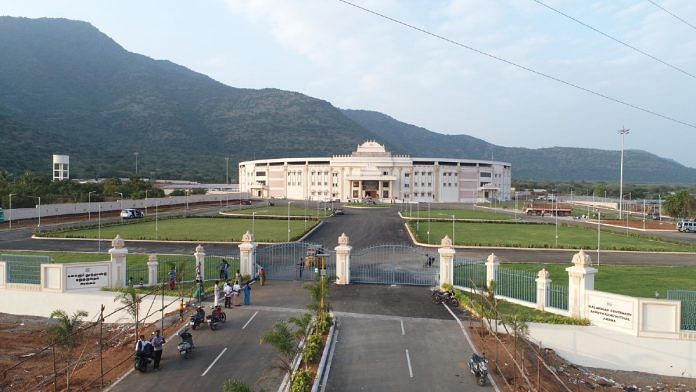Chennai: Tamil Nadu Chief Minister M.K. Stalin Wednesday inaugurated the state’s first Jallikattu stadium in Madurai. The Dravida Munnetra Kazhagam (DMK) chief said it is a matter of pride for him to know that history will remember him for building the complex.
Located in Keelakarai village near Madurai’s Alanganallur, the stadium with a three-tier spectator gallery is spread across 66.80 acres. Built at an estimated cost of Rs 62.77 crore, it can accommodate approximately 5,000 spectators and has a VVIP gallery with a seating capacity of 50.
Named after former chief minister and DMK patriarch late M. Karunanidhi, the Kalaignar Centenary Eru Thazhuvuthal Arangam will host IPL-like Jallikattu league matches organised by the state sports department and the Madurai district administration. The traditional sport is held in Madurai, Pudukottai, Sivaganagai, Trichy, and Coimbatore, among other districts, during the Tamil month of Thai (mid-January – mid-February).
However, regular Jallikattu events will not be shifted out of villages to the stadium, according to a statement by the state government.
“Madurai is called Thoonga Nagaram (city that never sleeps). A stadium for Eru Thazhuvuthal (Jallikattu), the traditional sport of Tamils in the city of Madurai was constructed by the DMK. It’s more special that the stadium is being inaugurated by the DMK during Kalaignar’s centenary celebrations,” Stalin said during the inauguration.
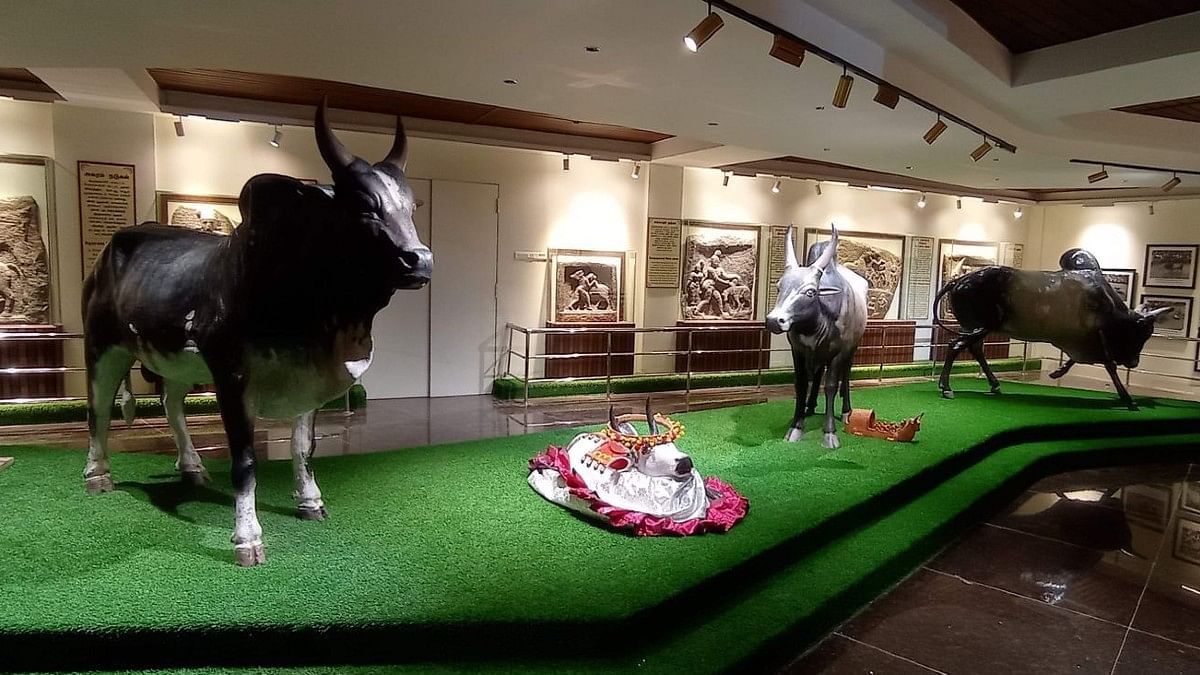
“Every year during Thai month, Alanganallur, Avaniyapuram, and Palamedu celebrate (Jallikattu). The decision to open the stadium here was to tell the world about the glory of the sport. Kalaignar was fond of the sport, so he used its image in the Murasoli (a Tamil-language newspaper started by Karunanidhi). Kalaignar organised Jallikattu in Chennai in 1974. And In 2006, when the high court banned Jallikattu, Kalaignar assured that the sporting event would be organised safely and obtained permission for it,” he added.
Accusing the BJP of indulging in ‘drama’ each year in the name of granting permission for the sport, Stalin said that the DMK made strong submissions before the Supreme Court, which in May last year upheld the practice of Jallikattu. Following the inauguration, the chief minister flagged off the first Jallikattu event to be organised in the stadium.
Built on an area of 83,462 sq. ft, the stadium has a six-metre long vadivasal (narrow gate), from where the bulls are released into the play area. The stadium also has an enclosure of 10,850 sq. ft where as many as 300 bulls fit for play can be held prior to the event. This enclosure is surrounded by necessary barricading and queuing arrangements.
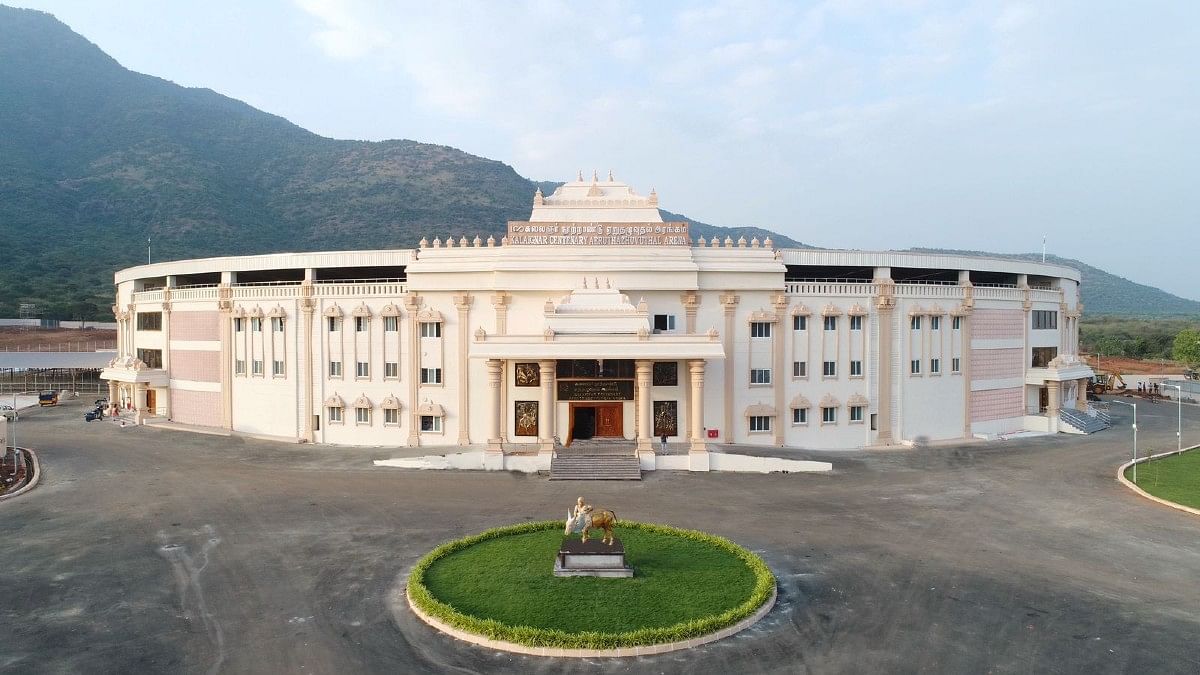
In case of major injuries, the bulls can be treated at the veterinary dispensary building on the premises. As for players who suffer injuries, a separate health sub-centre has been set up along with deployment of 10 ambulances there to tackle any medical emergencies.
Also part of the stadium are two museums. The first showcases the significance of bulls dating back to the Indus Valley civilization using sculptures, murals, and epigraphical evidence from Sangam literature and the second portrays the bond between bulls and bull owners.
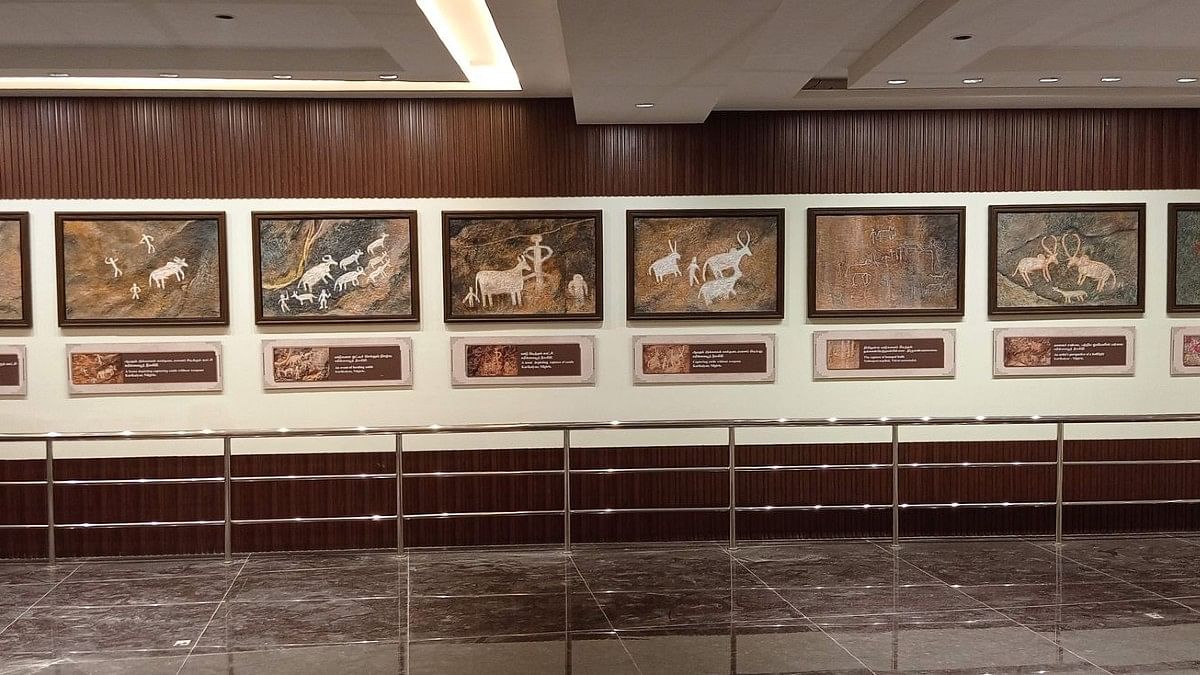
The stadium also has a playing area for children and a dedicated library with an extensive collection of books and documents including palm-leaf inscriptions denoting the historical significance of the traditional sporting event in Tamil Nadu. It also has an audio-visual room with a seating capacity of 100 that can be used to hold screenings of the games.
Madurai: TN’s Jallikattu capital
Though Jallikattu is held in several districts of Tamil Nadu, Madurai is home to some of the most popular venues for the sport. According to a research paper published in 2019, The Past and Presence of Jallikattu: An Overview by scholars Kalaiyarasan A. and Shruti Ragavan, ‘Jallikattu’ is a compound word derived from two Tamil words — sallikaasu (coins) and kattu (a package) — which gained currency during the colonial period.
During the sporting event, a bull is released into a crowd through a narrow gate and male participants try to grab a pouch tied to its horns by catching hold of the animal’s hump. The aim is to catch it, without it falling off the bull.
Indigenous breeds of bulls such as Kangayam and Pulikulam are widely used in the sport, due to their athleticism. Interestingly, the Tamil word for bull, maadu, also denotes wealth, and scholars say that the long-standing tradition is also associated with the value attached to the bull, in terms of wealth, culture, regional pride etc.
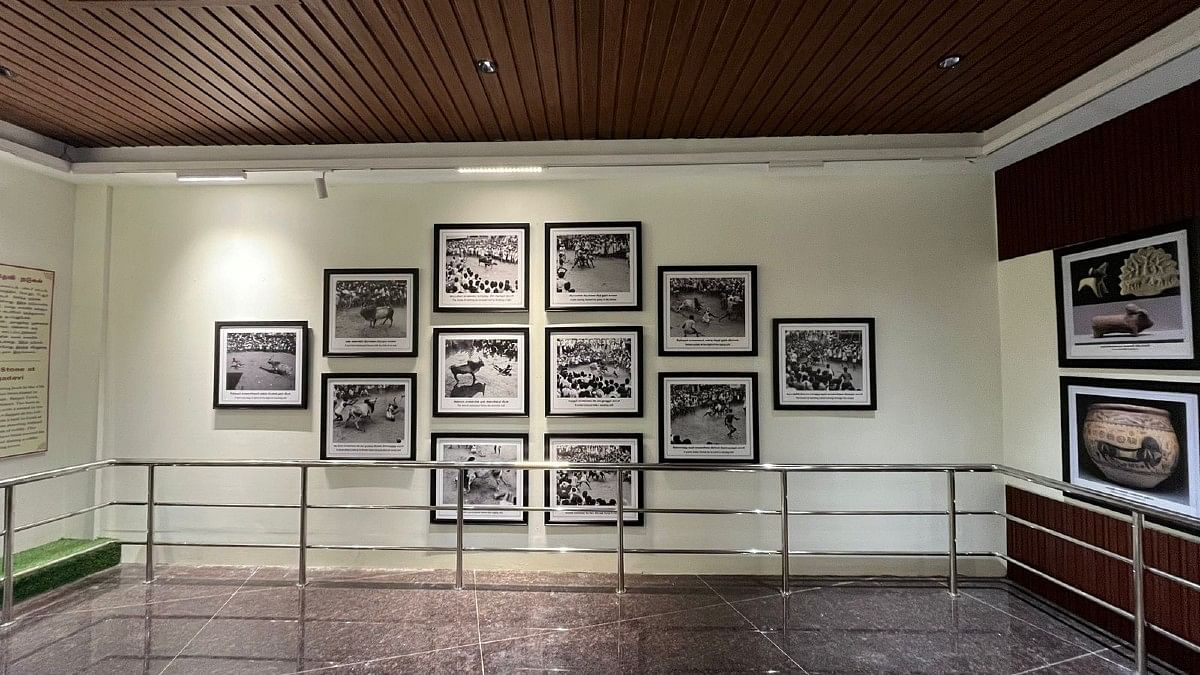
While the sporting event was historically organised on the second and third days of Pongal, it is now held on the first day of Pongal in the town of Avaniyapuram in Madurai, and on the second and third days in the towns of Palamedu and Alanganallur, respectively. Due to its wide popularity, the festival draws spectators from across the state and outside of it.
According to the research paper, Madurai’s Alanganallur became synonymous with the sport because of Murattu Kaalai, the hit 1980 film starring actror Rajnikanth. “Jallikattu is Alanganallur. Alanganallur is Jallikattu. Jallikattu is a symbol of Alanganallur,” the paper quoted Govindaraj, a bull keeper, as saying.
That emotion is strong even today. Each year, Tamil Nadu ministers flag off Jallikattu festivities in Alanganallur.
Controversies & bans
Over the years, the sport has run into many obstacles including incidents of serious injuries and death, besides concerns voiced by animal rights’ bodies. But popular support for the sport has dissuaded the state government from imposing a ban on it.
Following a high court-imposed ban on the sport in 2006 and a subsequent legal battle in the Supreme Court, the then DMK government passed the Tamil Nadu Regulation of Jallikattu Act, 2009, which laid down necessary precautionary measures to be taken by organisers, district collector, and rules for obtaining permission to organise the event.
In 2011, the central government issued a notification prohibiting the training and exhibition of bulls. The Animal Welfare Board of India (AWBI) and People for the Ethical Treatment of Animals (PETA) challenged the law in 2011, following which the Supreme Court in 2014 also imposed a ban on the sport and struck down the law passed by the state citing the 2011 notification.
A review filed in this regard by the state government was also dismissed by the apex court.
Following this, protests were held across the state to demand the withdrawal of the ban. The protest, which was later termed ‘Tamil Spring’ by many media outlets, was widely supported by the Tamil diaspora.
The protest, which began from Chennai’s Marina Beach in January 2017 as a student movement subsequently appealed to people from all walks of life and spread to other parts of the state.
Following the demonstrations that lasted several days, the central government cleared an ordinance passed by the then AIADMK government to amend the Prevention of Cruelty to Animals Act, 1960, to allow the sport.
According to the Prevention of Cruelty to Animals (Tamil Nadu Amendment) Act, 2017, the 1960 law will not apply to Jallikattu, which is conducted to promote the ‘cultural heritage of the State of Tamil Nadu and to ensure the survival and well-being of the native breeds of bulls’.
Though PETA and the Animal Welfare Board of India (AWBI) challenged the move in the Supreme Court again that same year, the five-bench Constitution bench of the apex court upheld the law in May 2023, thereby allowing the sport.
(Edited by Amrtansh Arora)


